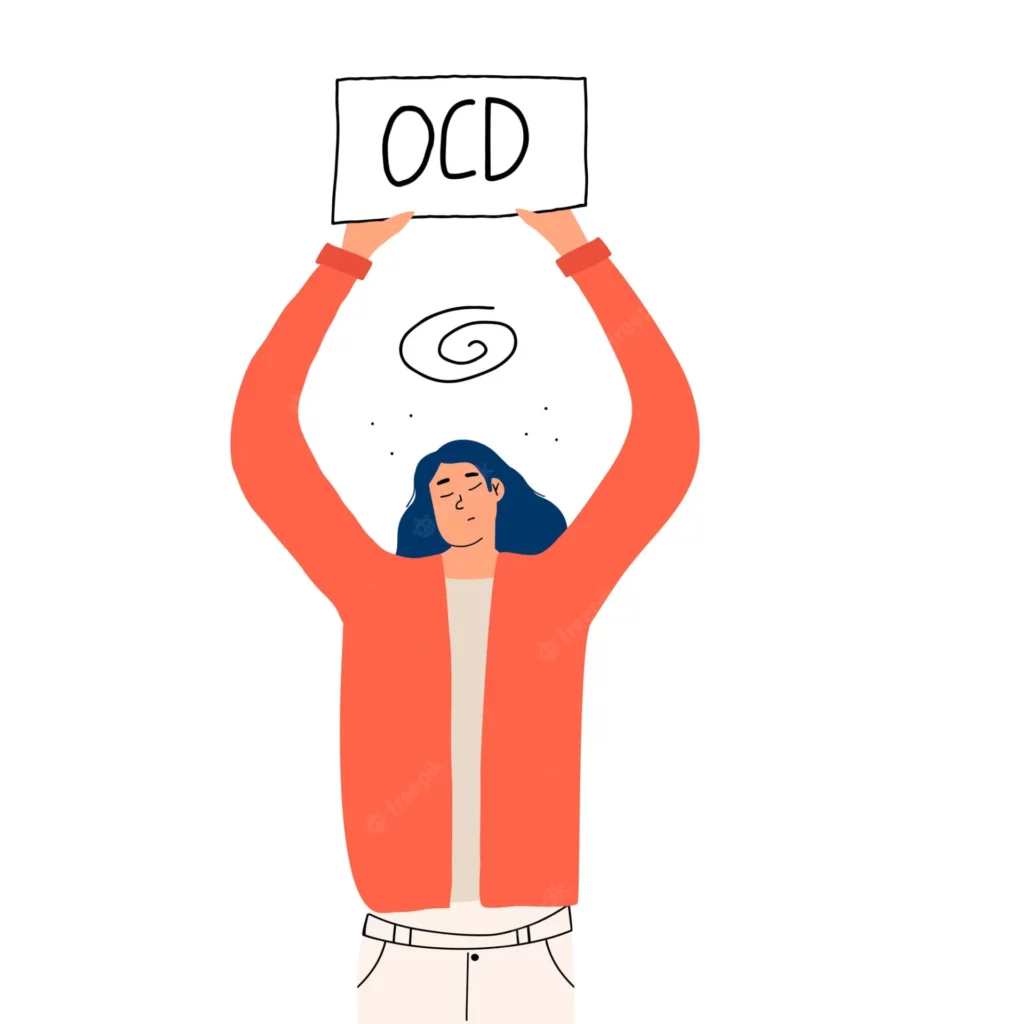There is a lot of debate surrounding whether or not exercise helps OCD. Some people swear by it, while others say that it makes their symptoms worse. So, what is the truth? Does exercise help OCD? The answer may surprise you! In this blog post, we will explore the effects that exercise has on OCD and provide some tips for incorporating physical activity into your treatment plan.
Contents
Defining OCD
OCD, also known as obsessive-compulsive disorder, is a mental health condition that characterizes by intrusive thoughts (obsessions) and repetitive behaviors (compulsions). The obsessions and compulsions can be extremely distressing and interfere with daily life. People with OCD often feel like they can’t control their thoughts or behaviors.
OCD is of various types, ranging from contamination obsessions and ordering compulsions to hoard and symmetry obsessions. They also share some commonalities, such as:
- Fear of contamination or dirt
- Intrusive thoughts about harm coming to oneself or others
- Excessive focus on orderliness, symmetry, and/or exactness
- Hoarding objects that have no value
It is important to note that not everyone with OCD will experience all types of obsessions and compulsions.
Does Exercise Help OCD?
As we all might be aware, exercise has a number of health benefits for both our physical and mental health. When we talk particularly about OCD, there has been a mix of research findings. Some studies say that exercise can help in reducing the symptoms of OCD while others have found no significant difference.
Research And Studies

Although the area of research and studies that answers the question of does exercise help with OCD is in progress, there have been some findings:
- A 2006 study found that people with OCD who exercised regularly had less severe OCD symptoms than those who didn’t exercise.
- Another study published in 2008 found that a single session of aerobic exercise (30 minutes on a stationary bike) reduced OCD symptoms immediately after the workout.
- Aerobics, along with some forms of yoga, has shown to be helpful in treating OCD, most likely because it helps to release endorphins, which are the body’s “feel good” chemicals.
- Physical activity also has evidence of reducing intrusive thoughts by helping to “quiet” the part of the brain that is linked with OCD symptoms.
So, what does this all mean? These studies seem to suggest that exercise can help reduce OCD symptoms, at least in the short term. However, it’s important to note that more research is needed in this area. If you have OCD and are considering starting an exercise program, be sure to consult with a healthcare provider/psychologist/trainer to be fully aware of the outcomes.
Benefits
Exercising for OCD can have multiple benefits. In addition to the positive influences we read above, adding exercise to your routine may help you in more ways than one!
- It can help to improve sleep quality and quantity: It is no secret that OCD affects the quality of sleep. This is so because people with OCD tend to have racing and intrusive thoughts at night which makes it difficult for them to fall asleep. Exercise can help reduce the intensity of these thoughts and also improve the duration of sleep.
- It releases “growth factors”: Growth factors are chemicals in the brain that play an important role in OCD. They help with the growth and survival of new cells and also protect existing ones. Exercise has been found to release these growth factors and help in the treatment of OCD.
- It reduces stress: Stress is a major trigger for OCD. When we are under stress, the symptoms of OCD tend to worsen. Exercise has been found to be a great stress reliever.
- It can act as a distraction: When people are bogged down by their obsessions and compulsions, exercise can provide a much-needed distraction. It can help to take their mind off of their obsessions and give them a break from repetitive thoughts and behaviors.
- A great way for reducing stress and anxiety: Exercise has a stress-reducing effect and can help to lower anxiety levels. This is important for people with OCD because high levels of stress and anxiety can worsen OCD symptoms.
- Contributes to enhancing concentration: Exercise has also been found to improve concentration. People with OCD often have difficulty concentrating on tasks due to their intrusive thoughts. Exercise can help to increase attention span and focus.
- It can help to boost self-esteem and confidence: One of the common effects of OCD is low self-esteem and confidence. This is because OCD can make people feel like they are not good enough or that they are not in control of their lives. Exercise can help to improve self-esteem by helping people feel strong and capable. It can also be a form of “self-care” that helps you feel good about taking care of yourself.
- Regular exercise can help to increase energy levels: Lastly, people with OCD often have low energy levels due to the amount of mental and emotional energy that is expended on their obsessions and compulsions. Exercise can help to increase energy levels and improve overall well-being.
All in all, it seems that exercise can be a helpful addition to treatment for OCD. However, it is important to remember that exercise is not a replacement for traditional treatment, but rather as a supplement.
Drawbacks

Contrary to the above, exercising may also have certain disadvantages to people with OCD in the following ways:
- It can increase anxiety: While moderate exercise can help to decrease anxiety, high-intensity exercise can actually increase it. This is because high-intensity exercise can trigger the release of adrenaline, which can lead to feelings of anxiety.
- It can worsen body dysmorphic disorder symptoms: Body dysmorphic disorder is a type of OCD that is characterized by a preoccupation with one or more perceived defects in appearance. Exercise can actually worsen the symptoms of body dysmorphic disorder by increasing self-awareness and triggering obsessive thoughts about appearance.
- It can lead to exercise addiction: Exercise addiction is a real phenomenon, and it can be just as harmful as any other type of addiction. People with OCD may be at a higher risk for developing an exercise addiction due to the compulsions associated with the disorder.
- It can trigger Obsessive-Compulsive Exercise Disorder: This is a relatively new disorder that is characterized by compulsive exercise behaviors. People with OCD may be at a higher risk for developing this disorder due to the obsessions associated with the disorder.
While exercise can be a helpful addition to treatment for OCD, it is important to be aware of the potential drawbacks. If you are considering starting an exercise program, be sure to speak with your healthcare provider or therapist to ensure that it is right for you.
Which Exercises Help With OCD?

Now that we know the psychological effects of exercise on OCD, we will now cover some of the specific exercises that can help.
Please note that this is not an exhaustive list, but rather a starting point for you to explore what works best for you.
- Yoga: Yoga has been a proof to be helpful in reducing stress and anxiety. It is also a form of mindfulness, which can help to reduce OCD symptoms.
- Aerobics: Aerobic exercise has been shown to be an effective treatment for OCD. It involves activities that increase your heart rate and breathing, such as running, walking, biking, or swimming. A recent study found that people who participated in aerobic exercise showed significant improvements in OCD symptoms.
- Pilates: Pilates is a form of exercise that can help to improve flexibility, strength, and posture. It can also help to reduce stress and anxiety. A recent study found that Pilates may be an effective treatment for OCD. It is a gentle and low-impact form of exercise that can be done at home or in a studio.
- Mindfulness-based Stress Reduction: Mindfulness-based stress reduction (MBSR) is a form of mindfulness that can help to reduce stress and anxiety. It involves a combination of mindfulness meditation and yoga. A recent study found that MBSR may be an effective treatment for OCD.
- Running: Running is a form of cardio that can help to reduce stress and anxiety. It is also a great way to get out of your head and focus on your surroundings.
- Swimming: Swimming is another form of cardio that can help to ease OCD symptoms. The rhythmic movements of swimming can help to calm the mind and body, providing a much-needed break from intrusive thoughts.
These are a few types of exercise that can be beneficial for those struggling with OCD. However, it’s important to remember that everyone is different and what works for one person may not work for another. Individuality and consistency are key when it comes to finding an exercise routine that helps to ease your OCD symptoms.
Tips To Incorporate
If you decide to give exercise a try to help ease your OCD symptoms, there are a few things you can do to make it more effective.

- Choose an activity that you enjoy. If you don’t enjoy the activity, you’re less likely to stick with it. Choose something that you can see yourself doing on a regular basis.
- Start slow. If you’re new to exercise, or if you haven’t been active in a while, it’s important to start slow. Begin with just a few minutes of activity each day and gradually increase your time as you become more comfortable.
- Find a support system. It can be helpful to find someone who is also struggling with OCD to help you stay motivated. This could be a friend, family member, or even an online support group.
- Exercise for OCD doesn’t have to be intense or time-consuming. Even moderate exercise, such as a brisk walk, can offer benefits. And it’s something you can do at home, without needing a gym membership or expensive equipment.
It is always best to consult with your doctor or mental health professional to get their opinion before starting any type of exercise program. They can provide guidance on which exercises may be best for you on the basis of your respective condition.
Conclusion
Conclusively, the answer to the question of ‘does exercise help OCD’ is a complex one. While there are many benefits to exercise, it may not be the silver bullet that some people are hoping for. However, for many people, exercise can be a helpful addition to other treatment methods. So, if you’re struggling with OCD, it may be worth giving exercise a try. Keep in mind some basic tips and be sure to consult with your doctor before starting any new exercise program.
OCD can be a debilitating disorder, but there is hope for recovery. At Therapy Mantra, we have a team of experienced mental health professionals who can help you learn how to manage your OCD symptoms. Our services are available from all across the globe at affordable rates. Contact us today to book a session or download our free OCD treatment app on Android or iOS for more information.


